ARRIVING |
||
| WITHOUT | LEAVING | (Guaranteed Happy Ending) |
| Space can be a social product, a potential tool for thought and action. This performative discussion forum explored the notion of THE BRANDSCAPE and parallels between the production of immersive environments in real space and new departures in the construction of augmented, virtual and computer mediated realities.
The event took place between Toronto and Fogo Island. |
||
ACT 1 |
||
| PRESENTATION: This augmented telepresent zone, shot entirely from your Point Of View (P.O.V.), uses the format of a Choose-Your-Own-Adventure story to explore sensations of remoteness and presence. Featuring an “interactive” romantic encounter with an Artist-in-Residence (AiR) on a far-flung island, the work deploys multi-modal five-sense stimulation, facilitating full immersion in an experience designed by Lucy Pawlak. | ||
 |
ACT 2 | |
FORUM: An informal focus group experimented with and reflected upon architectures of transmission and reception, the production of space and the scripting of experience. discussion around augmented realities and immaterial forces shaping our lives was conducted via a remote third space. each group (Fogo Island and Toronto) transmitted contributions to an actor/avatar in a remote third space projected into each auditorium. Thus, the actual conversation between the two groups was performed by their on screen avatars (see diagram).
|
||
| ACT3 | Post-forum forum - A direct line videoconference between THE two spaces: Art Metropole and Fogo Island Film House. | |
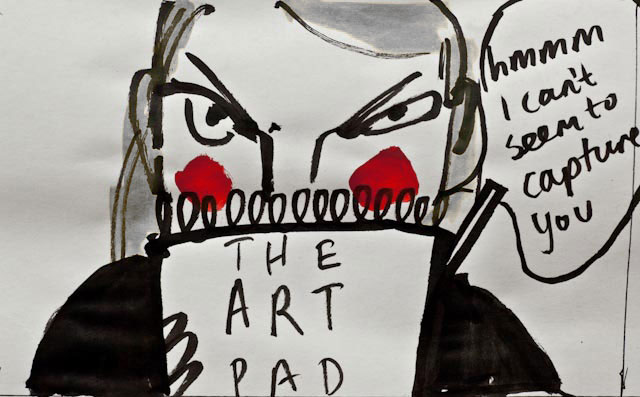 |
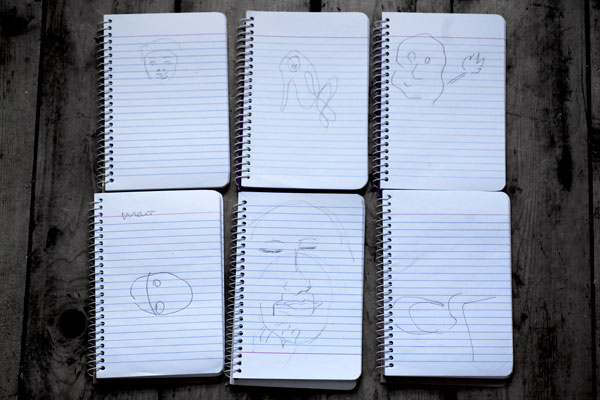 |
|
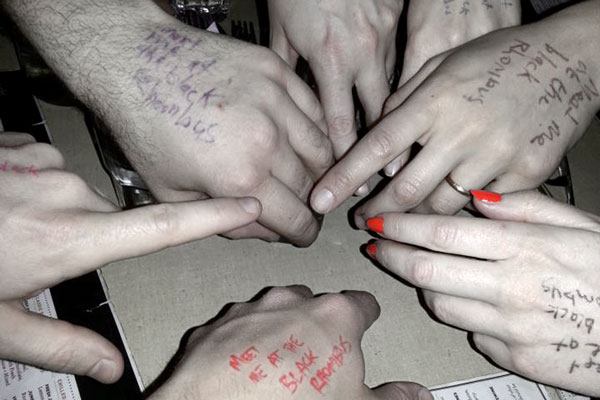 |
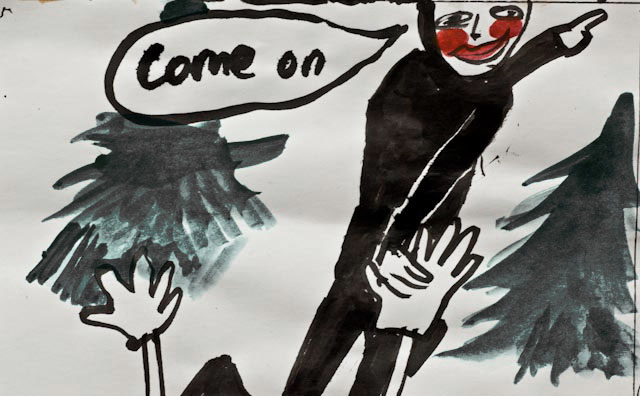 |
|
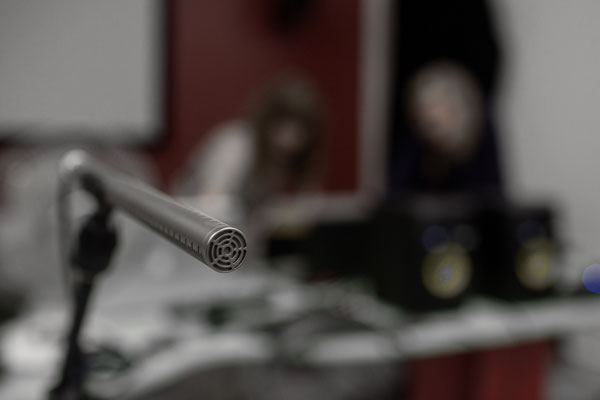 |
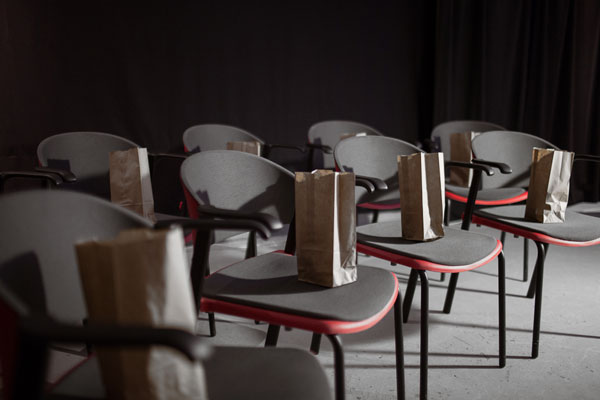 |
|
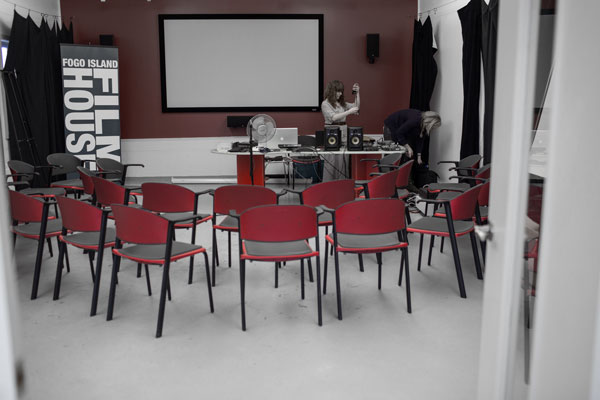 |
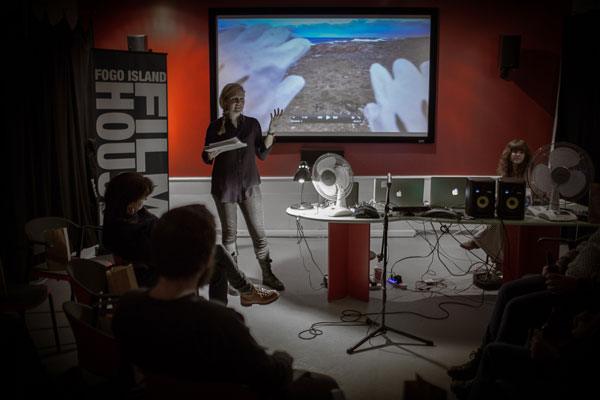 |
|
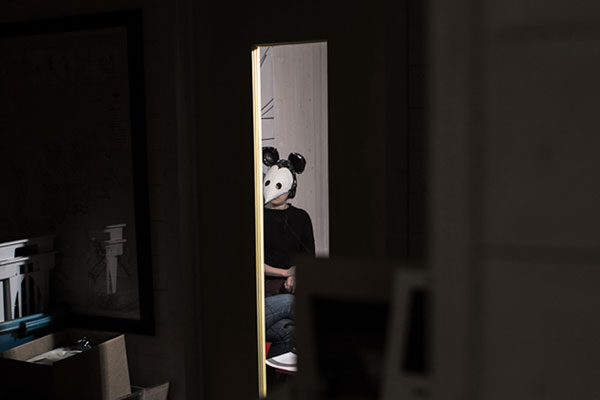 |
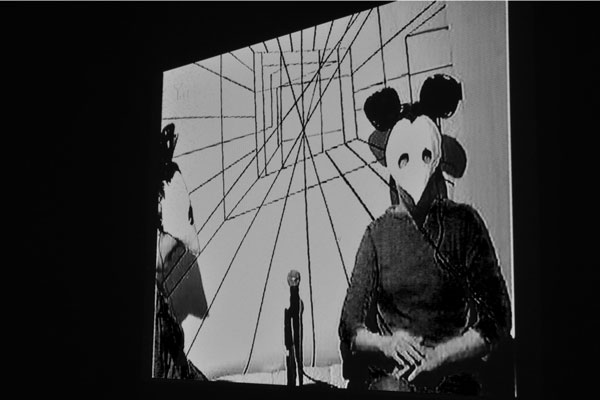 |
|
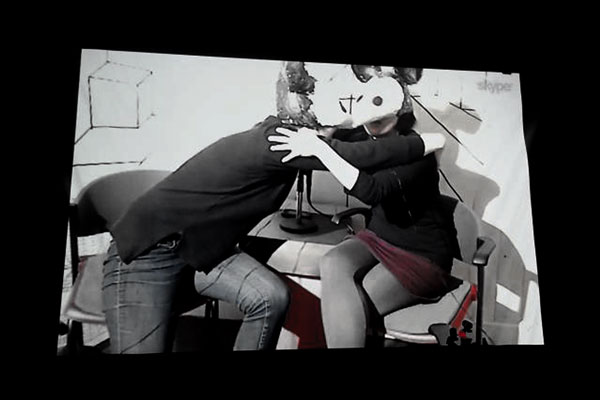 |
HOSTS: The Institute Of Immaterialism is an event-based publishing project that spawns experiences designed with the immaterial forces that shape our contemporary social landscape. We work with artists, pale ontologists, paleontologists, anglers, wranglers, and economists to collectively explore immaterial markets, social networks, pecking orders, and power struggles. We temporarily give ourselves over to instructions. A loose series of minutes are collected and circulated freely. Art Metropole is a not-for-profit organisation with a focus on the production, dissemination and contextualization of artist-initiated publication in any media, especially those formats and practices predisposed to sharing and circulation. Located off the coast of Newfoundland in Canada, Fogo Island Arts is a residency-based contemporary art venue. The programs support artistic research and production for artists from around the world. All Fogo Island Arts initiatives are part of a social enterprise-based business model that supports the economic viability of the Fogo Island Inn and the growth of tourism on Fogo Island. |
|
Questions surrounding how we act together lie at the core of Lucy Pawlak’s practice. She aims to design structures for reflexive navigation of how and why we conform to systems and what the possibilities of breaking with patterns might offer. She is involved in ongoing practical research into the potential for critical distance in augmented reality. She also hopes to give up writing about herself in the third person someday. Pawlak was an Artist-in-Residence on Fogo Island, experimenting with wireless transception and remote communication.
EVENT CONCEPT: Lucy Pawlak |
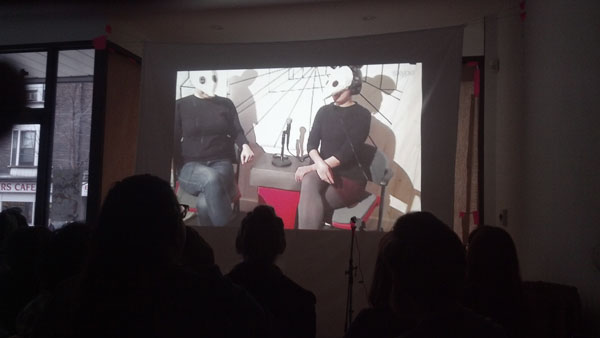 |
|
The live event holds a primary status in contemporary art practices. This departure can be considered as part of a wider movement towards intangibles: Experience Design and The Transformational Economy (the marketing of designed transformative experiences). Process becomes product and performance is called publishing, sets of instructions are exchanged for currency. Perhaps contemporary enthusiasms for structures, systems and instructions, for organising life as a scripted event or experience marks a paradigm shift towards approaches influenced by machine-based processes and a bio-political perspective on life (a design for life). Today, as traditional modes of film production fade to black and iterations of mediated ‘liveness’ and designed ‘interactive’ immersive environments become increasingly integrated into public and private social space, it seems important to attend to how we (individuals, communities, institutions) engage with and are shaped by the architectures of the interfaces of these zones. How can we cultivate an empowered practical critique of relations with the technologies of augmented realities and produced spaces through working with the apparatus? The event aimed to develop strategies for transforming the cinema auditorium into a forum that incorporated the “Third Space”, beyond the screen in reflexive critical discussions swinging between immersion and estrangement. It seems increasingly important to find ways to collectively deconstruct the technologies permeating us, and their/our impacts upon existing states of affairs. Augmented/mediated realities have a special kind of darkness, for (as with consciousness itself), how can we see it if we see right through it? The event aimed to combine audiovisual technologies with the concept of transception (transmission and reception) to create a Brechtian Verfremdungseffekt / distancing effect (“Being” at one remove) from the immersive technologies themselves. Technologies were slowed, causing interactions to stutter and jar. |
||